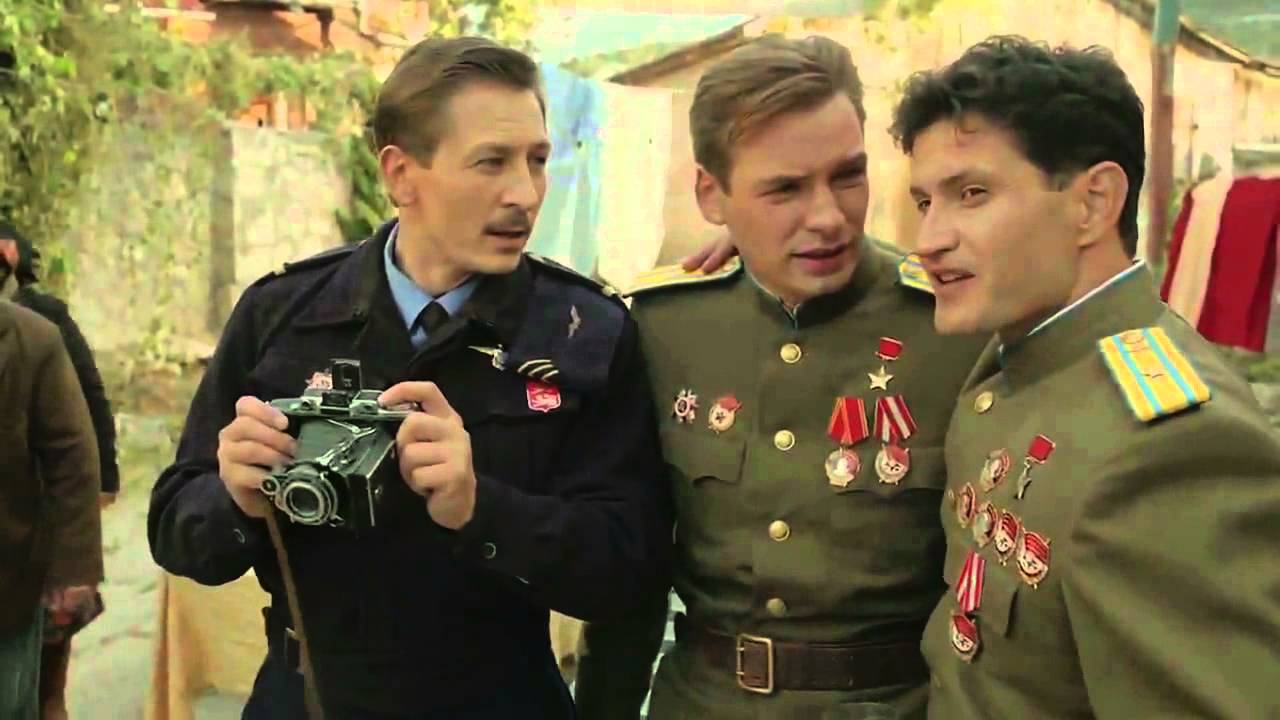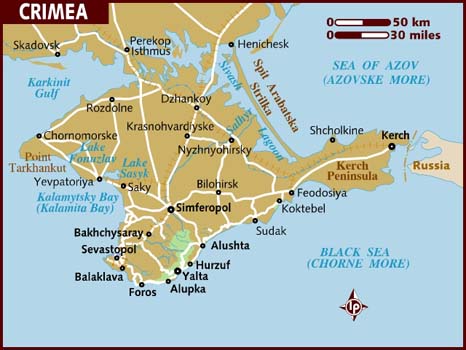Among the many films prohibited for public screening in Russia is Haytarma, the first feature film about Stalin's deportation of the Crimean Tatars from their homeland. The forceful eviction of nearly 200,000 people (238,500 by other accounts), most of whom were women and children to Central Asia started on 18 May 1944. They were given only 30 minutes to pack their belongings. Nearly half of them perished in the difficult journey, not being able to withstand the heat, lack of water, and inhumane conditions of the cattle wagons transporting them to Uzbekistan, Kazakhstan, and Tajikistan. Other national minorities in Crimea such as the Germans, Bulgarians, Armenians, and Greeks were evicted as well.
Read more: Deportation, genocide, and Russia’s war against Crimean Tatars
Stalin's official reason for the deportation, the supposed collaboration of the Crimean Tatars with the Nazi occupation regime during 1942–1943, was a purely nominal one: collaborators were found in all occupied USSR territories regardless of their nationality, but the majority fought against the Nazi invasion, like the 5 Crimean Tatars who were awarded as Heroes of the USSR. They, together with women and children who were evacuated, could physically not have collaborated with the Nazis but were deported nonetheless. Haytarma, Crimean Tatar for "The Return," tells the story of one such Hero.
It is likely Putin's war on history aiming to whitewash Soviet crimes that is behind this movie being banned for screening in Russian theaters, along with many others. When the film premiered in Simferopol before the Russian occupation four years ago on 17 May 2013, Russia's consul Vladimir Andreyev provoked public controversy by stating that the film "distorts the historical truth" and called the Crimean Tatar traitors and collaborationists.
Ironically, Haytarma also won the prestigious Nika Russian film award on 1 April 2014 but was prohibited for public screenings in Russia. Produced by the Crimean Tatar channel ATR which has now been forced to leave Crimea and broadcasts from Kyiv and directed by Crimean Tatar filmmaker Akhtem Seitablaiev, it also won the prize of the Kimera International Film Festival in the Italian city of Termoli for "Best Director" and "Best Film" and is the winner in the category "Best Feature Film" at the Trieste Film Festival in Italy.
The picture

The film shows this tragic page in the history of the Crimean Tatar people through the eyes of the famous aviator and national hero of the Crimean Tatars Amet-Khan Sultan. The events start on 9 May 1944 on an airfield at the outskirts of Sevastopol during the Second World War. The Soviet army is finishing liberating Crimea from the fascist forces. Amet-Khan's friend and partner Andrey dies during an air battle for Sevastopol.
On 16 May 1944, after Sevastopol was liberated, the military command allows Amet-Khan Sultan a three-day visit to his native Alupka together with his friends Vova and Francois. There they meet Amet-Khan's many relatives. And on 4 AM of 18 May 1944, the NKVD starts its operation to deport Crimea's native people from their homeland, including Amet-Khan's relatives. The Soviet ace, who was feared by German pilots, was powerless to protect his people from the crimes of the Stalinist regime.
Haytarma was funded by the Crimean Tatar businessman Lenur Isliamov, was filmed over 6 months and produced by his TV channel ATR, and cost $ 1.5 mn. Most of the roles were played by amateur actors. More than a thousand people from all over Crimea were filmed in the crowd scenes. A large part of them is elderly people who lived through the tragic events of 18 May 1944.
Crimean Tatars today: "hybrid genocide"
The deportation of the Crimean Tatars was officially condemned in the USSR in 1989, and by Russia and Ukraine, with the latter declaring the deportation an act of genocide. Only in the late 1980's did Crimean Tatars start coming back from exile, only to face another round of repressions in 2014, after Russia's illegitimate takeover of the Ukrainian peninsula in the aftermath of the Euromaidan revolution. This year, as the three years before, the Crimean Tatars are forbidden to commemorate the date of their deportation, 18 May, the Crimean Tatar representative organ, the Mejlis, is banned, and members of the community are persecuted: today, at least 22 Crimean Tatars are imprisoned on political motives, and the leaders are barred from entering Crimea.
These policies of the Russian occupation authorities towards Crimea's native population have already been dubbed a "hybrid genocide." While the international community is becoming more aware of the repressions endured by the indigenous peoples of Crimea, with the International Court of Justice ruling that Russia must reinstate the Mejlis and the Council of Europe following with the same demand, Russia has ignored these calls and shows no signs of slowing down repressions. Which is why a visit of the EU Commissioner for human rights, who last visited Crimea in September 2014, is more pressing than ever. Ukraine's belated recognition of the Crimean Tatars as the indigenous population of Crimea and proposed legislation on establishing a Crimean Tatar national autonomy in Crimea are also part of the solution to an occupation that, in the words of legendary Crimean Tatar leader Mustafa Dzhemilev, would never have happened had the autonomy been in place in 2014.
Read more:
- I survived genocide. Stories of survivors of Crimean Tatar deportation
- Putin conducting 'hybrid genocide' against Crimean Tatars
- Remember the Crimean Tatars jailed for resisting Russian occupation
- Moscow urged to stop its 'hybrid genocide' of Crimean Tatars
- Ukrainian parliament declares 1944 Soviet deportation of Crimean Tatars an act of genocide
- “Son of Crimea”: documentary tells of struggle of Crimean Tatars to return to homeland. Watch online
- Russia's policy of genocide
- Russian occupier of Crimea threatens to repeat one of Stalin’s most barbaric acts in 1944
- On this May 18, we must all become Crimean Tatars
- Council of Europe demands Russia reinstate Crimean Tatar Mejlis, allow leaders to enter Crimea
- UN Court takes on Ukraine’s case against Russia, partially grants request to provisional measures





